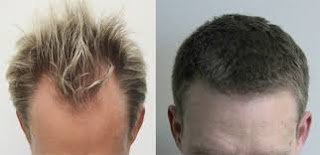Experiencing itching after hair restoration surgery is a common occurrence and is typically a part of the healing process. It can be uncomfortable, but it's usually temporary and can be managed with proper care. Here are some tips to help alleviate itching after a hair restoration surgery in Islamabad.
Follow Post-Op Instructions: Your surgeon or medical team should provide you with specific post-operative instructions. Follow these instructions carefully, as they will help ensure proper healing and reduce the risk of complications.
Avoid Scratching: It's important to resist the urge to scratch the transplanted area, as scratching can disrupt the healing process and potentially damage the newly transplanted hair follicles.
Gentle Cleansing: Gently clean the recipient area as per your surgeon's instructions. Keeping the area clean can help reduce the risk of infection and minimize itching. Use a mild, non-irritating shampoo recommended by your surgeon.
Moisturize: Your surgeon might recommend a specific moisturizer to apply to the recipient area. This can help keep the skin hydrated and reduce itching.
Cool Compresses: Applying cool, damp compresses to the itching area can provide temporary relief. Ensure that the compress is clean and not too cold to avoid damaging the healing skin.
Avoid Harsh Chemicals: Avoid using harsh hair products or chemicals in the transplanted area until it's fully healed. These products can irritate the skin and worsen itching.
Over-the-Counter Medications: If the itching is mild, your surgeon might recommend over-the-counter antihistamines or topical creams to help alleviate the discomfort. However, always consult your hair transplant surgeon in Peshawar before using any medications.
Stay Hydrated: Drinking plenty of water can help keep your skin and body hydrated, which might reduce itching.
Loose Clothing: Avoid tight clothing that can rub against the transplanted area and cause irritation. opt for loose, comfortable clothing during the healing process.
Patience: Itching is a normal part of the healing process and will eventually subside as your scalp heals. Practice patience and resist the urge to scratch.
If the itching becomes severe, persistent, or is accompanied by other concerning symptoms such as pain, redness, swelling, or pus, contact your surgeon immediately. These could be signs of an infection or other complications that need prompt attention.
Keep in mind that individual experiences can vary, and it's important to follow the guidance of your surgeon or medical team throughout the healing process. They can provide personalized advice based on your specific situation.

